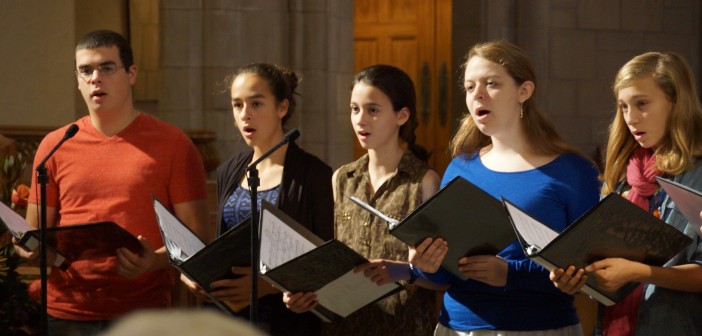Some people like to recite a phrase “it’s not the size of the choir, but the heart of the people participating” that matters. This sounds beautiful and may have some moral truth, but you will notice that directors of programs that are actively gaining members and are full of energy in recruitment never make this statement. People are drawn to growing ministries, and repelled by shrinking ones. If you want to have a vital and energetic program, it must also appear to be vital and energetic from both a visual and aural perspective. What are some tangible ways to be successful in recruitment?
Recruitment is everybody’s job, but it is your job to create the culture of recruitment.
Make recruiting an everyday commitment.
A leader must decide that bringing people into the fold of your program is a top priority. You must decide that it is not something that will simply take the form of specific events or seasons of recruitment, but something you will spend time on every single day.
Remember, it never hurts to ask. You do not know who might say “yes.” I can honestly say that I never once received a hostile response from an invitation email. I received plenty of “no” responses of course, but nobody ever got upset that I asked. Many wonderful instrumentalists and singers are looking for opportunities to play and sing. You will be surprised at how many encouraging responses you will get when you ask, even if they are “no” responses.
Create a culture of recruitment.
Once you are willing to invest the daily time and effort, the next step is to create a culture where recruitment is the rule, rather than the exception. Imagine a ministry where, without having to be instructed to do so, choir members were always seeking to bring others into the program. When prospective choir members came to rehearsal, the current members would surround them. They would never stake claims on particular seats and would seek to make new members feel completely welcome. They would help gather essential materials needed for the evening. This philosophy must be in place for active recruitment to take place, or your effort to bring people into the fold will resemble throwing darts at a concrete slab. Recruitment is everybody’s job, but it is your job to create the culture of recruitment.
Recruit at times when it will have the greatest impact.
Consider times in your church year when people will be present for the first time. Rarely have I attended a church during a Christmas Eve or Easter Sunday service and received an invitation to join choir. Yet, recruiting at these times makes complete sense. Your music program is most active and most prepared during this time, so your product will presumably be of higher quality, and thus more attractive. There will be people there who may rarely attend church, but may love to sing or play an instrument. Remember that many long-term church members have found their niche in the church already, and are less likely to join your ministry than someone who is brand new and has not yet committed to any other church ministries. Choose the times that you recruit carefully so that they will have the greatest impact.
Follow-up is critical.
Once you have mastered timing, the final step is making it easy. Always remember that the longer the time between the invitation and the action, the larger the number of people who will fall by the wayside. In any recruitment situation, the most important step is the follow up. It is crucial that you follow up within two days maximum. People need to know that you are serious about reaching out to them. It is also essential that you contact them in more than one way.
A great option is to send an email the day after you receive an expression of interest, and to follow up with a phone call the next day. It is also best if the music director is not the one making the calls. Have volunteers from your choir make the calls and make sure they give specific information about rehearsal times, requirements, materials, and answers to any and all questions they might receive about getting involved in your ministry.
With some hard work and effort, you can break through that recruitment barrier. It takes commitment, timing, and planning, but your hard work will pay off!






